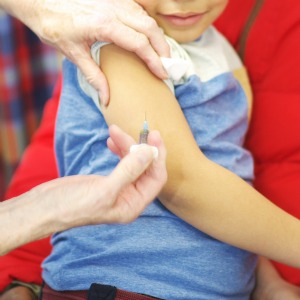‘Have you noticed Sophie’s cough?’
It’s a cold day in February and I’m picking up my daughter from school. There aren’t as many parents around as usual – there’s a bug going round, and half the class are tucked up in bed watching cartoons.
No such luck for a GP’s child. The teacher suddenly remembers what I do for a living and laughs. She tells me how her father was a doctor and she never got to miss school – and how it took her PE teacher to notice she had a greenstick fracture, three days after it happened. I joke that Sophie will pretty much have to be missing her head to be allowed a day off school.
There are a lot of us around, doctors who are also parents. But does being a parent make you a better doctor? And does being a doctor make you a better parent?
On the one hand, any life experience makes you a better doctor. My father died after living with dementia for many years. I wouldn’t wish dementia – or caring for a relative with it – on my worst enemy, but it made me a better doctor. I’m more understanding with family and carers of elderly patients and can better understand the horrors of dementia. I share my experience with patients and their families if it feels right, and empathise with the toxic mix of emotions when a patient with dementia dies: the grief, the comfort that they aren’t suffering any more, accompanied maybe with a touch of relief that you no longer have to care for someone who was a shell of their former self, and the guilt that you’ve even dared to have such thoughts.
I cringe when I think back to my younger days; criticising a carer for being late for an appointment, overlooking the huge efforts they had made to get there at all, being reluctant to visit them, and continually treating every chest infection with no thought for the future of the patient’s care.
On the other hand, being a parent has made me a better doctor. I’m lucky – so far my children have avoided major illness, but I understand the gut-wrenching terror if you think your child is ill even if, to the eyes of a professional, they look OK. I also know the embarrassment parents feel when children perk up the minute the doctor arrives, and the mind-numbing tiredness that makes parents act irrationally.
I’m more likely to proactively show a nursing mother which room to breastfeed in, or offer advice on how to get a toddler to let you give them eye drops. No doctor can empathise with every type of patient. For instance I’ve never had a chronic disease, been in pain for a long time, been depressed, infertile, disabled – just a few examples of the myriad experiences that make my colleagues better doctors. However, I have had a three-week-old baby who wouldn’t sleep until, in my desperation, I put him down to sleep on his front. After that, I had a bit more sympathy for other patients and carers who had trouble following doctors’ advice.
My friends think that being a doctor make you a better parent.
‘Your kids are so lucky,’ they tell me, ‘they can get a GP opinion any time of the day or night without fighting a receptionist.’
But I’m not so sure. As a doctor-parent I find it difficult to be objective, either being over-anxious or over-relaxed.
For example, I took my newborn son to A&E convinced he had pertussis and was going to have apnoeas and die. It was only looking at him through the eyes of a puzzled SHO that I realised how well he looked between coughs, and what an overreaction I had had. If I hadn’t spent all day reading emails about a local paediatric death from pertussis in a nearby practice, I’m sure I’d have been calmer.
Should Sophie really have been at school that day? She’s only 7 – wouldn’t a day in bed have benefited her more than a day at school, coughing? Or am I teaching her a valuable lesson – that in life, you get on with it unless you are really unable to – thus stopping her from turning into the type of adult who rings the GP because they’ve had a sore throat for two hours?
I don’t know, and the answer’s irrelevant anyway – our kids will always be doctor’s children, for better or for worse.
Dr Toni Hazell is a GP in Tottenham, north London.
Pulse asked for talented GP writers to send us stories to inspire and amuse their colleagues, and we were bowled over by the quality of the entries submitted.
Nearly 30 GPs took the time to put pen to paper – or finger to keyboard – and entries varied from amusing tales from consultations to clinical dilemmas or political ideas about general practice or the NHS in general.
Pulse October survey
Take our July 2025 survey to potentially win £1.000 worth of tokens





 Oviva’s fully remote Tier 3 Weight Management programme
Oviva’s fully remote Tier 3 Weight Management programme







